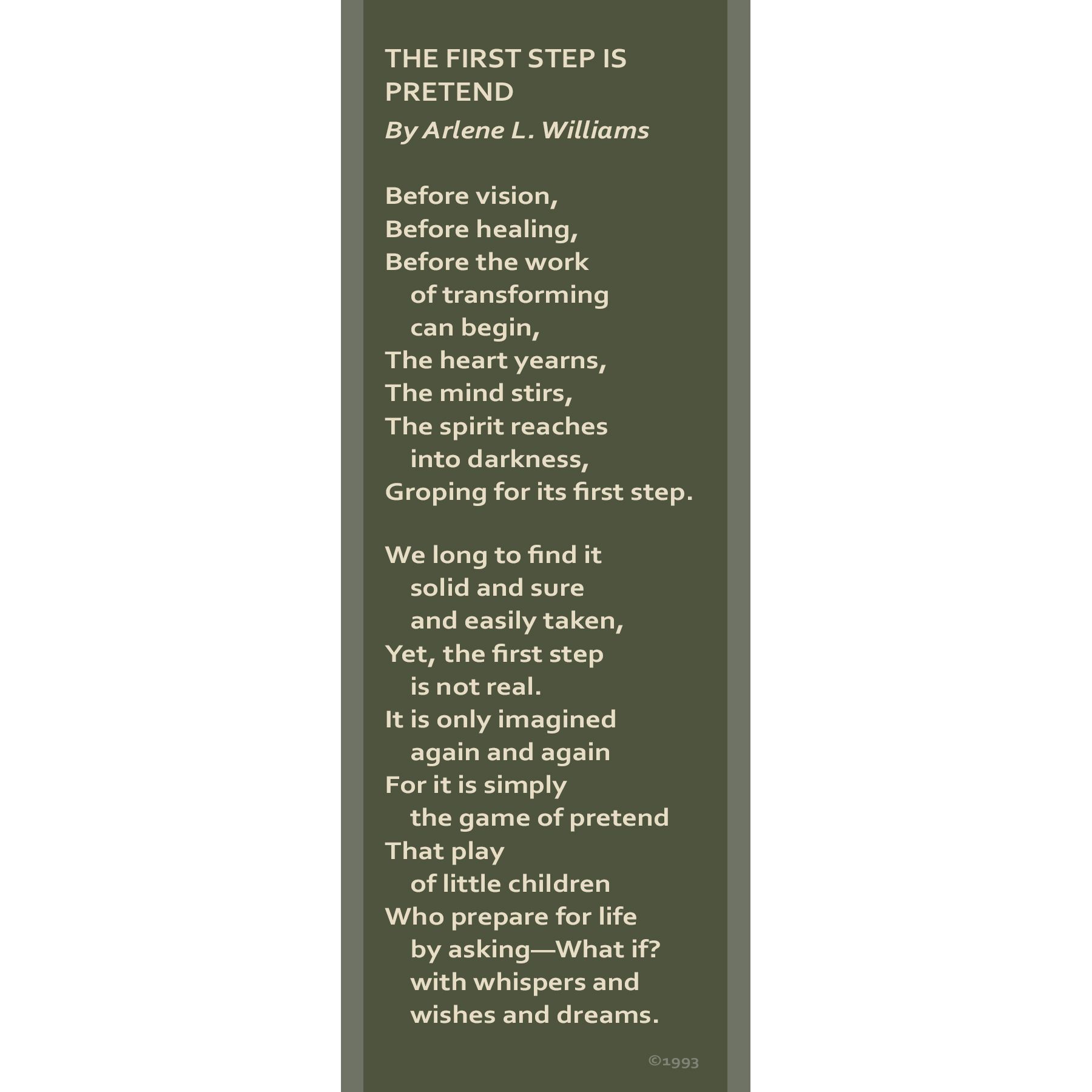Fixing the climate crisis: Can you imagine it?

I found an old poem when cleaning out a paper file. I wrote it in 1993. It expresses my belief that our most powerful tool for fixing the climate crisis is our imaginations. I called it: The First Step is Pretend.
Information is invaluable for understanding there is a problem, and scientists have given us all the data needed to know we are causing climate change. Yet, information hasn’t helped us fix the crisis. Why? Because it doesn’t reach deep into the ancient parts of our brains, the ones that respond to storytelling.
Stories change the world by changing us. Lisa Cron, in her book Story Genius: How to Use Brain Science to Go Beyond Outlining and Write a Riveting Novel, says:
“When we’re under the spell of a compelling story, we undergo internal changes along with the protagonist, and her insights become part of the way we, too, see the world. Stories instill meaning directly into our belief system, the same way experience does—not by telling us what is right, but by allowing us to feel it ourselves.”
That’s why stories are needed now, ones helping us see the possible pathways to transforming our energy systems, our consumer choices, our politics, and our priorities about what matters most in life. Yet a good deal of the climate fiction I find is grim, about dystopia, about what went wrong and living through the aftermath.
We need a new kind of story. A story that gives us heroes and hope and paths to action. We need stories in all genres, for all ages. And we need to find a way to support the struggling writers who are reaching for these stories within their imaginations so they can get past the traditional publishing gatekeepers—the agents and editors—who only look for safe bets.
I leave you with my poem. It has always shaped my motivation to write stories that reach for a better world. Now I am dedicating myself to writing for the Earth by creating a vision for healing our climate.




Member discussion